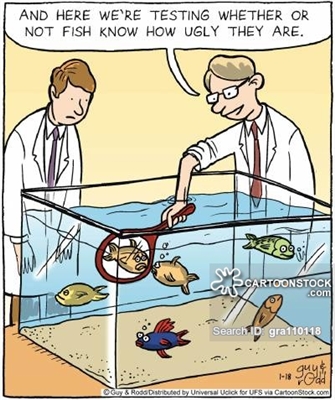Graphic designer Yulya Semenova about favorite books
IN BACKGROUND "BOOK SHELF" we ask journalists, writers, scholars, curators, and other heroines about their literary preferences and publications, which occupy an important place in their bookcase. Today, graphic designer Yulya Semenova shares her stories about favorite books.

 Books have been with me since my early childhood. I was born with a hip joint injury, and my legs were in a cast almost before I was one year old — that is, my physical activity was very much limited. All this time, mom, dad, grandmother and grandfather read books to me and talked to me. I still could not walk, but I already said.
Books have been with me since my early childhood. I was born with a hip joint injury, and my legs were in a cast almost before I was one year old — that is, my physical activity was very much limited. All this time, mom, dad, grandmother and grandfather read books to me and talked to me. I still could not walk, but I already said.
Later in childhood I was surrounded by many wonderful books, and before my eyes my grandfather’s library was always in the closet-wall: then it seemed to me simply immense. Every night I watched him sit in a chair, carefully put on his glasses and turn on a floor lamp, read some book. Often I climbed into the next armchair and also read something from my big beautiful books or leafed through encyclopedias and looked at pictures. I owe my love of books to him.
At school I was very interested in reading, but I didn’t like the framework at all - “be sure to read the three chapters by Monday”. As it turned out later, in our experimental school there was a very unusual program in literature: for example, none of my acquaintances in the third grade read Hector Malo's No Family, which I swallowed in a few days, bursting into tears on the last chapters. Most of all I liked the magic stories: I was crazy about "The Chronicles of Narnia", "Alice in Wonderland", "Ozma from Oz," books from the Enchanted World series. From time to time strange books about witchcraft, magic, potions, magical creatures and the like got into my library.
Later, I got the prefix PlayStation, and the books faded into the background until the appearance of "Harry Potter". In the early 2000s, I printed out translations before the official books came out, found fan art on Japanese websites, and printed pictures for classmates. We had questionnaires, where we chose at what faculty we study, what our magic wand is made of, what our favorite subjects and pet are. And all this happened before the marketing potteroman boom. At a transitional age, a literary hole came: it was more interesting for me to walk and hang out in bad companies, which in my life had changed quite a lot. But later I realized that I was madly in love with studying and reading, and from about eighteen I could not imagine my life without books.
At some point, I was overwhelmed by a wave of literature about healthy living: I read, it seems, everything that could have been at that time, about the eating habits and conspiracies of corporations. All this went along with the philosophy of yoga, the books of Fuller, Jung, Itten and a powerful immersion in Buddhism. A couple of years ago, for six months I did not read anything except sutras, comments on them and books on brain research and meditation. Then, it seems, everyone who met me at some point listened to my stories about mirror neurons and brain possibilities. I embroidered and listened to the lectures of the Dalai Lama, drove the subway and listened to his comments on the sutras.
I have a special relationship with audiobooks. It seems that everything started when I began to embroider. I couldn’t just do one thing - listening to audio books was a perfect parallel exercise. The same can be said for the bike: as soon as the asphalt gets dry, I open the season and do not close it until it gets completely cold. Very often, while driving instead of music, I listen to books.
The best time for perception and learning for me is morning, so I try to read or listen to books or, for example, learn a language precisely then. In the evening, for relaxation, I like to read fiction. Last year I absolutely can not read one book, only if it does not enthrall me so much that I read it in one day. I usually stick to a certain system, I try to read no more than two books, regularly alternating them: one is artistic, the other is scientific. Then the attention is slightly scattered, but they do not have time to get bored. In my opinion, just perfect.
On a trip I like to take one book, which was lying on a shelf, like a tidbit of cake, waiting for the time when I can read it without tension somewhere in nature, without any hurry. I especially like to read on airplanes and trains in the intervals between looking out the window: there is an opportunity to stop and think while traveling from one point to another with great speed. Now I am waiting for Rockwell Kent's autobiography or the complete collection of Hesse’s books. The works of Hesse, his language and philosophy are very consonant with what is inside of me - perhaps this is the main author of my life. Sometimes, reading him, I cried because of how subtly he managed to convey the essence of things, and still grateful to him to the depths of the soul.
Despite the fact that I am madly in love and appreciate the printed book, at some point I began to read almost all the books on the tablet. I really love Bookmate service for the opportunity to systematize literature, mark quotes, an extensive library and good design. I buy a book when I really like it and I want to have it in my library. And so my whole library fits into a thin tablet that I can easily carry anywhere. I’m pretty simple about things, and a lot of books that have been useful and important to me, I just give to friends. My books are walking around the world, and I can’t even imagine where they are and from whom. But so much the better - it's good when things have life.
I will say a rather banal thought: our world can become better only when every single person becomes better. When he is interested in knowing himself and when he unbiasedly investigates both the inner and the outer world. Our values, by and large, turned upside down. Crazy capitalist race - the pursuit of the pink dragon, which never catch up. For myself, I realized that health cannot be achieved without a holistic approach to the psychological state, a careful study of the history of myths and symbols, the human psyche and the structure of self-actualization. At one time, humanistic psychology greatly expanded my views on others and myself, and I would like to share this selection of books.

Karen Horney
"Neurosis and personal growth"
This book has revealed a lot to me, in which I could not admit to myself - both about myself and about other people. Horney is a Neo-Freudian. I was advised to read the book by a friend from Kiev, warning that at some point from reading I would most likely become ill. I remember, I then grinned, which, of course, no, I can’t feel bad from a book. After a couple of weeks, I sat on the floor, laying the tablet and my head on the bed, and wept bitterly, realizing all my classic neurotic patterns. I advise this work to anyone who wants to know how the psyche functions, where neuroses come from, how behavioral patterns are imposed on us and how to get out of this trap.
Karl Gustav Jung
"Man and His Symbols"
The history of symbols and archetypes has always interested me. This is incredibly interesting and multifaceted work, the study of man from different sides: the surrounding culture, the unconscious, dreams, archetypal images. The book has articles from Jung's followers and his own thoughts, super important for understanding psychological processes. And from it you can learn to better understand your dreams - and this is truly exciting.
Johan Huizinga
"Man playing"
Huizinga's book is about a person and the mechanisms of his subconscious, which we no longer understand because of the insane pace in which we live. I started listening to this book in the audio version, but in the first chapter I understood that I needed to read it on paper. The author pays great attention to the role of initiation rituals that have been present in all cultures at all times, but now almost invisible. It turns out that many problems of identification, maturation and self-awareness in our society are associated with this invisibility. But the main theme of this work is the phenomenon of the game and its universal significance in the history of our species. Multifaceted, bright and clear text, opening the eyes to human culture.
Joseph campbell
"Thousands of hero"
I once worked as a cook, cooked vegan breakfasts and dinners with my partner in the DI Telegraph, and, by tradition, new employees came to our kitchen to help prepare dinner. Also a kind of initiation. It was an interesting practice, because people came to us completely different. One of my favorite questions was "Which books are interesting to you?" Somehow we talked about Jung, and our new employee (I think it was the developer) advised me to Campbell. The Thousandsome Hero turned out to be a study of mythology based on psychoanalysis. Everything I love! Cosmogony, the interrelation of cultures, archetypes, heroes — it becomes clearer with this book how our psyche works and how strongly we are all connected.
Erich Fromm
"Man for himself"
One of my favorite books is Fromm. I listened to her in the summer, driving in the mornings to work through Sokolniki, and then VDNH. Fromm I perceive as my teacher and good old friend. With each of his books, my mental state became better: I felt the wisdom of this person, a clear vision of the whole person. This is the same reading, after which it became clear: I have no serious psychological problems, and chaos really surrounds us. Fromm, as always, speaks of the importance of finding psychic harmony in order to fully realize his creative potential. And discusses how norms, values, and economics program our psychological state.
Jean Baudrillard
"Symbolic exchange and death"
Another rare book that I found in print. I could not find it on the web: I had to buy a paper with a crazy design. But even her dismal look could not distract me from the content. "Symbolic exchange" was written in 1976, but Baudrillard seemed to predict the future of the Internet. In this work, he examines in detail the loss of the correlation of things and signs, the transition to hyperreality, to the field of infinite simulation and a departure from real life. I especially remember his observations on labor productivity: in fact, there is no labor - and this is another simulation that allows a person to socialize. I consider Baudrillard a genius and a visionary, who should read everything without exception.
Lao Tzu
"The Book of Truth and Strength"
This book is put on a par with the Bible and the Torah, and it’s not for nothing. I read it for a very long time - often interrupted by other books. "The book is about truth and power" from the category of those that can be opened at any time on any page and read a wise thought that will make the day completely different. Such books have always helped me to get together, reassured and forced to smile, knowing that everything is not in vain. With its help, you learn to understand the world, the order of life, and you realize how to be a worthy person. Comments of Bronislav Vinogrodsky with turns in the spirit of "a speck of dust in the attic of my childhood," oddly enough, ideally complement the thoughts of Lao Tzu.
Eric Kleinenberg
"Solo life. New social reality"
I have been living a “solo” for a long time, and it was very interesting for me to read about this “new social reality”. Loneliness is now perceived by people quite differently, and it seems that this happens for the first time in human history. In the end, this book put me in a daze. Representatives of completely different social groups and ages consciously choose life in solitude. Kleinenberg gives information about the possible problems of the future, caused by such social behavior, as well as about the approaching reality - robotization and changes in the infrastructure and services that are adjusted to the new model of behavior of single people.
Alexander Lowen
"Betrayal of the body"
My acquaintance with Lowen had not the rainbow period, but it helped a lot. If Horney treats the neurotic personality structure to a greater degree, then Lowen draws attention to the schizoid type with a powerful detachment from the body. I know that this problem is familiar to many people who have difficulties in accepting themselves and their physical parameters, who cannot feel well in their own body. Loewen examines in detail the causes of this situation and offers various methods of rehabilitation. In the examples of his patients, I recognized the cases of many of my friends. This is a really great book for those who want to assemble their split parts and live a full life without fear and frustration. I also advise the book to all those prone to depression, who do not fully understand where our disorders come from.
Jonge Mingyur Rinpoche
"Buddha, the brain and the neurophysiology of happiness"
The first book about meditation, which fell into my hands before serious enthusiasm for Buddhism. She was written by a Tibetan monk who combined the knowledge and wisdom of Buddhism with the latest discoveries of Western science. Studies of the influence of Buddhist meditation on the psychological state of a person show that positive changes as a result of meditation are not just speculation. A person can really live a much more relaxed, happy and joyful life, knowing how to relax and renew during meditation, doing exercises for the brain that keep him in good shape. This book will be interesting to anyone who is far from Buddhism, but is interested in recent studies of human consciousness and neurophysiology.




